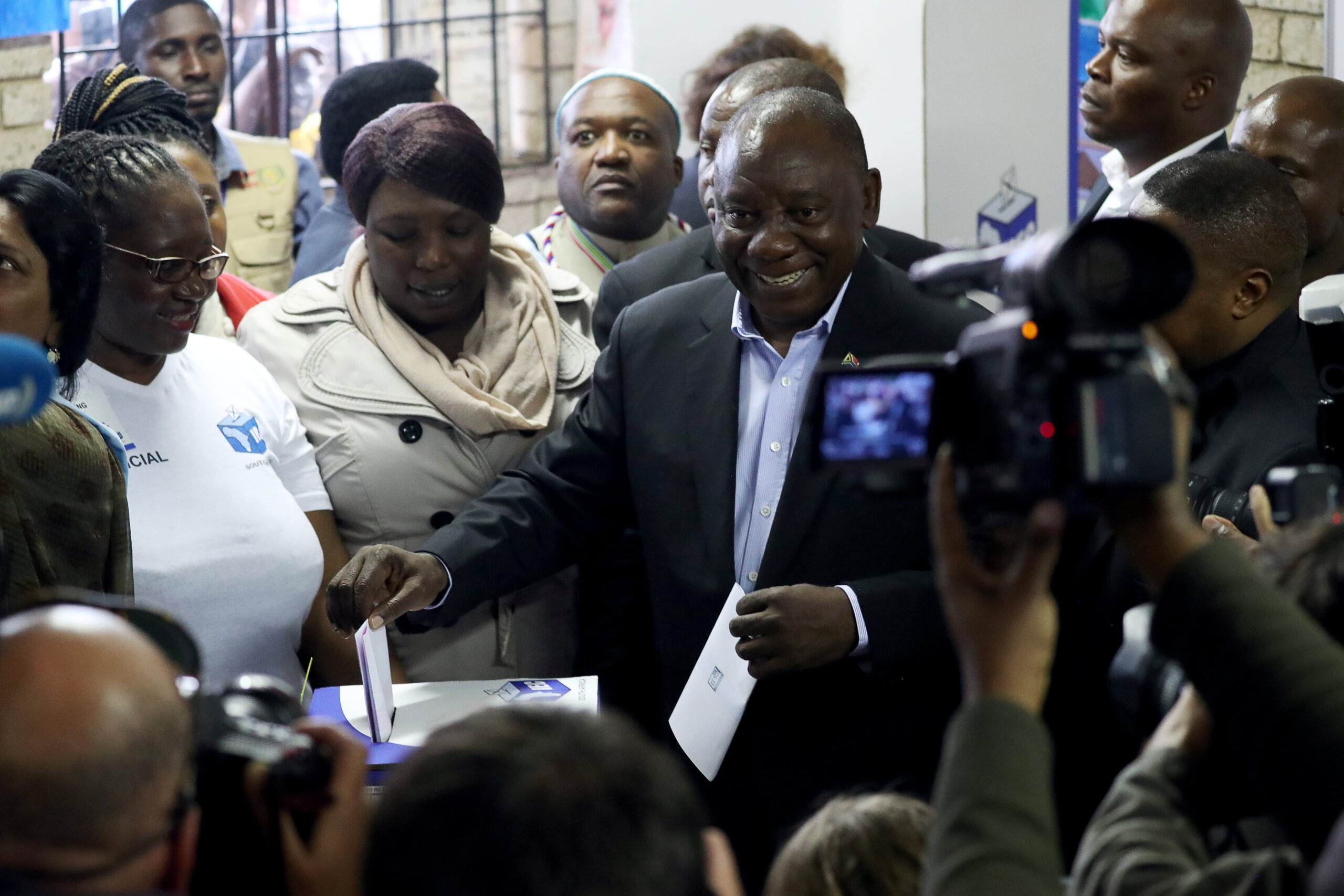
South Africans head to the polls in general elections

South Africans voted in the country’s parliamentary and provincial elections on Wednesday, with long queues winding around various polling stations from early this morning.
These are the sixth democratic elections in the country since the end of white-minority rule and 25 years since South Africans first voted in the African National Congress (ANC), lead by Nelson Mandela.
“The response of our people to voting is just amazing, the nation and our people are energised to cast their vote and they can see that with their vote that they are heralding a new dawn,” incumbent President Cyril Ramaphosa and leader of the ANC told reporters after casting his ballot in Soweto Township in Johannesburg.
This is Ramaphosa’s first national election after Jacob Zuma was replaced as head of state in February 2018 following a string of corruption scandals.
Over 26.7 million South Africans are registered to vote, with 48 political parties competing.
Another 10 million have not registered. Many of those unregistered citizens are young people who have voiced a sense of disillusionment with the current state of South African politics.
Those who have decided to vote will be choosing which political party they want representing them in the National Assembly and the Provincial Legislature, as part of a proportional representation voting system.

The ruling ANC has won every parliamentary election in South Africa’s democracy and the party is widely predicted to win these elections.
However, for the first time since 1994, the ANC is not guaranteed an overwhelming majority.
The party is facing its toughest electoral challenge yet from voters frustrated over party corruption and a failure to deliver on promises in the 25 years of South African democracy and ANC rule.
“We’ve made mistakes, but we are sorry about those mistakes, and we are saying our people should re-invest their confidence in us,” Ramaphosa said in Soweto. “We are going to correct the bad ways of the past,” he said.
The wane in ANC support marks a notable opportunity for the party’s biggest challengers, centre-right opposition party the Democratic Alliance (DA) and the leftist Economic Freedom Fighters (EFF), to make gains in today’s elections and potentially pave the way towards a transition of power in the future.
“Fear says to us let’s stick with what we know, hope says let’s bring change,” DA leader Mmusi Maimane said after casting his ballot in another part of Soweto.

The EFF’s leader Julius Malema, who cast his vote in the northern city of Polokwane, told reporters: “If you need change, the EFF is the way to go.”
His party won 6 percent of the vote in 2014, making it the third-largest presence in parliament, and analysts expect an increase in EFF support in the elections today, particularly from young, employment South Africans.
For the majority for South African voters, regardless of party loyalties, the primary hope is that the elections will bring about change.
With the country plagued by inequality, poverty, and unemployment, those queueing up in the early morning cold of Soweto all expressed hope that the future parliament will work towards addressing these issues.

Ntsako Baloyi, a young South African, came out to vote in Soweto. “I expect the elections to bring change, and not just benefit the individuals, as we have been before,” he told CGTN.
“I want everyone to benefit, especially the youth, cause the youth is the most suffering than all the ages. So lets empower the youth, any party that will win has to make sure the youth is empowered so that our country’s economy can go further.”






